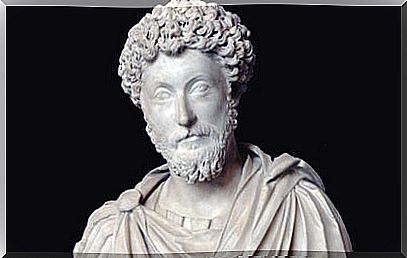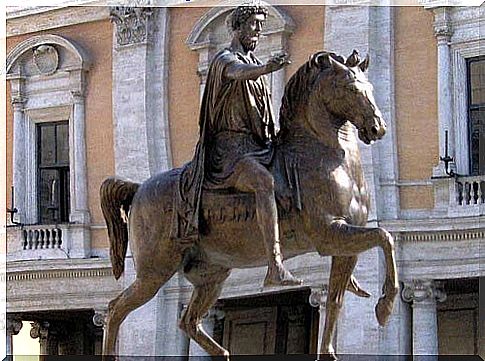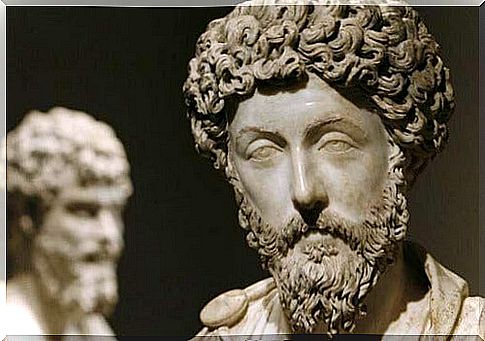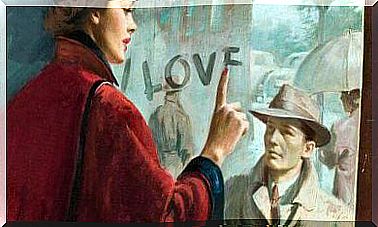Marcus Aurelius, Biography Of The Philosopher Emperor

Marcus Aurelius is known as the last of the “five good emperors. ” Historians often define him as a ruler loyal to the Roman Empire, but above all, as a great thinker who also suffered the weight of the throne. His desire was always to cultivate as a philosopher, therefore, his appointment as emperor, partly limited his intellectual purposes.
We can criticize Marco Aurelio Antonino Augusto, nicknamed the Wise or the Philosopher, various things in his career. We do not understand, for example, why he chose as his successor someone with dubious psychological balance as his son Comfortable. Nor do we share the extermination that he carried out with the Marcomanni and Sarmatians.
Now, to this day, the stele of his figure continues to be admired and respected for many different reasons. The first, for being that emperor who always tried to be fair. He was also someone who practiced introspection and who, unlike many of his predecessors, was not carried away by excesses, hedonism or glory.
Marcus Aurelius was the philosopher Caesar. He emerged as the forerunner of self-help theories and books thanks to invaluable works such as his Meditations. In fact, personalities in the history of psychology such as Albert Ellis, nourish many of their ideas from that stoic approach, from those roots from which to learn to control thought to bring balance to life.

Biography of the wise emperor, Marcus Aurelius
Marco Aurelio was born in Rome on April 26, 121 AD He was the son of the politician Marco Annio Vero and Domicia Lucila. As a child he was interested in Greek and Latin rhetoric, and also in philosophy. It was a natural inclination, an interest also encouraged by his mother, who instilled in him the importance of leading an austere life, of being humble in every way.
Although there was something undeniable, something that could never harmonize with the idea of leading a simple existence. His paternal great-aunt was Vibia Sabina, wife of the Emperor Hadrian. In this way, he was always given the best education, coming to have Herod Atticus and Marco Cornelio Frontón as teachers, the latter being his friend and spiritual advisor. In fact, in the year 133, Marcus Aurelius had fallen seduced by Stoicism, and wore the mantle of a philosopher.
The appointment of the new emperor
In 136, Adriano appointed Lucio Vero as his successor. However, the emperor was always admired by the honesty and profound wisdom of Marcus Aurelius. So much so, that it was common for him to always offer him advice and gradually become his right hand man. In that prudent, correct, thoughtful figure.
He was consul three times and married the daughter of the Emperor Antoninus, Faustina. Later he would receive the tribunicia potestas as well as the imperium , the greatest formal powers of the Roman Empire. Thus, when he turned 40, Marco Aurelio finally ascended to the throne along with Lucio Vero. However, with the death of the latter, he finally became emperor.
The last good emperor
With the appointment of Marcus Aurelius as emperor, a troubled period began in the Empire. The barbarian attacks lashed the fringes of Rome. Also revolts, epidemics and constant uprisings challenged the natural temper of the regent, known by all for his usual serenity and moral strength.
It is known, for example, that he had no military experience and that he hated blood. So much so, that he even ordered the gladiators to leave the circus to serve in the army. He was also concerned about improving the condition of the slaves and getting rid of all kinds of luxuries to reduce the economic crisis that the Empire was suffering.
Thus, in his relationship with Christians, he adopted the same position as Trajan: he did not persecute them. He did not share his religious practices, but he never put them in his spot of attention. It also enjoyed occasional successes, managed to cope with pressure from the barbarians, controlled the Germans, and seized part of Mesopotamia from the Parthians in 161.

At the time of peace, in 175 he accepted the entry into the empire of groups of barbarians. However, he would meet his end in 177, during a campaign where the plague took his life. His son Commodus would then assume the position of emperor, ending what would be the reign of the last good emperor (as Nerva, Trajan, Hadrian, Antonino Pío and Marco Aurelio himself were before).
Meditations, the art of living well and its influence on psychology
Marcus Aurelius is considered the last great Stoic of antiquity. Through his letters and those writings that were collected in a book known as Meditations , we discover the intellectual depth of the philosopher Caesar.
- This work, written in a series of maxims or reflections, undoubtedly lays the foundations for self-help books. Moreover, we intuit, in turn, many concepts that would later develop in modern psychology.
- Marco Aurelio tells us about how the use of reason offers us courage in the face of adversity. Although many of these ideas are rooted in the principles of Epictetus’ Stoicism and Neoplatonism, we can find equally interesting ideas in him.
- In this way, perspectives such as the rational emotional behavioral therapy of Albert Ellis (1955), are also inspired by many of those principles that Marco Aurelio transmitted to us in his Meditations .
- He argues, for example, that unexpected, uncomfortable, or troublesome events are not truly unexpected until we interpret them that way. It is our mind and thought that puts the filter of anguish, we who add the emotional component to an event.
As we can see, the basis of irrational thoughts is found in the work of the last good emperor, Marcus Aurelius.
The philosophy and psychology of tranquility
In Meditations, Marco Aurelio reminds us that people are wise and virtuous by nature. Now, to maintain that internal balance, that tranquility, we must turn the mind away from both the memories of the past and the expectations of the future.
He argues this principle using a principle of logic in turn: it is useless to worry about a future that does not yet exist. Therefore, it is better to abandon ourselves in harmony to the present and to our own becoming. When that moment arrives, we will have to face it with adequate integrity, judgment and know-how.

Life well lived, for Marco Aurelio, had to be built under a principle of absolute simplicity. There is no need to worry about what does not yet exist. It is better to get rid of what is not useful, what is superfluous. We must flee from the pleasures that do not feed the mind, we must not give value to criticism or foolish words and what is more important … There is no better refuge than the interior itself.
Although the world is at war, what we must never lose is the peace of heart, the harmony of being. Since with that quality, there will be no difficulty or setback that we cannot face. As we can see, the thoughts of Marcus Aurelius continue to be precious gifts of wisdom and reflection.









